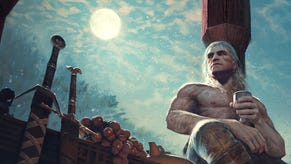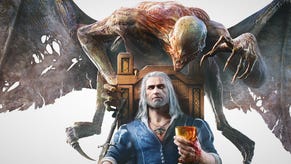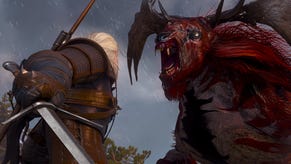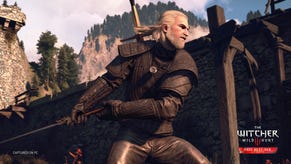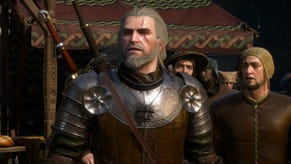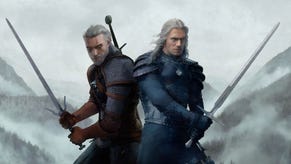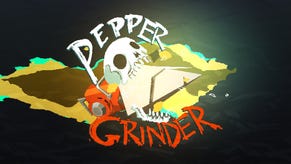The Witcher
None more black.
Let's talk about the term "role-playing game", shall we? It's one of those phrases that has slipped into the gaming vernacular so easily that we tend to forget what it actually means, and end up using it all wrong. Common wisdom has it that any game in which your character earns experience and levels up accordingly can be tucked away under the RPG blanket. For me, that's only half right. The clue's in the name - role-playing. Games in which you create a role and then act out that character in the gameworld. Without the freedom to come up with your own virtual identity, what you're really talking about are adventure games with a few RPG trimmings.
So, by my reckoning, The Witcher is only half an RPG. The role you play is non-negotiable - you're Geralt, a white-haired growly-voiced amnesiac anti-hero. Nor can you choose his profession. It is, after all, rather set in stone by the verb-slaughtering title of the game. He's a witcher, a professional slayer of the supernatural, wandering from town to town ridding the countryside of foul beasts using swords, magic and a little bit of alchemy. You'll be using the same swords for pretty much the whole game (though you can augment them), your armour options are limited and you've got a fairly rigid vengeance-fuelled goal in mind. If you're looking for one of those games where you can craft your own jewel-encrusted golden armour, and spend months tinkering with optional side-quests, then move along. This one isn't for you.
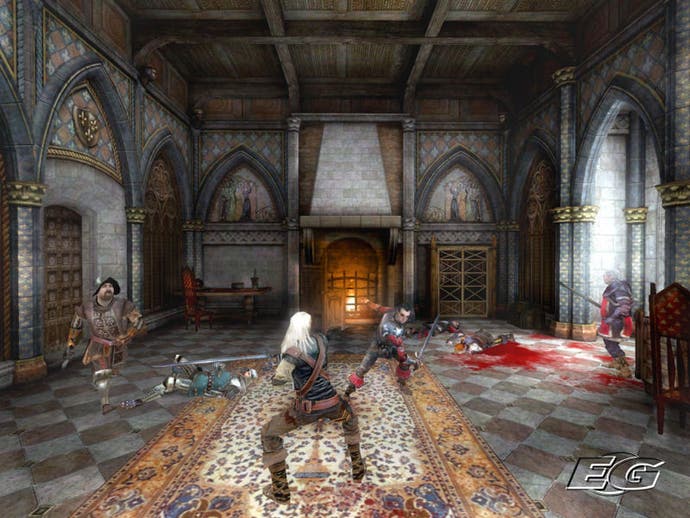
If, however, you're a fan of compellingly realised environments, commendably realistic social interactions and full-blooded fantasy storytelling then pull up a pew, since The Witcher has a lot to offer.
That the game world is deep and convincingly fleshed-out shouldn't really come as a surprise. Polish developer CD Projekt not only had Andrzej Sapkowski's series of fantasy novels to provide the finer details, but they had experience translating such classic role-players as Baldur's Gate and Planescape: Torment for Eastern Europe. With Bioware's Aurora engine to provide the graphical muscle, the pieces are all in place for an above-average RPG-style experience.
The game can be viewed top-down, as in Baldur's Gate, in which case control is entirely mouse driven, or you can opt for a more action-packed over-the-shoulder viewpoint, which uses the expected WASD control-map for movement with mouse-clicks for interaction and hotkeys for magic and weapons. This close-up option is undeniably the more cinematic, offering a good view of the detailed environments, but it can be cumbersome in combat. The camera has an annoying habit of resetting in front of Geralt, all the better to admire his craggy features, but it does mean that fighting involves a lot of frantic spinning around as you try to keep your pointer hovering over an enemy.
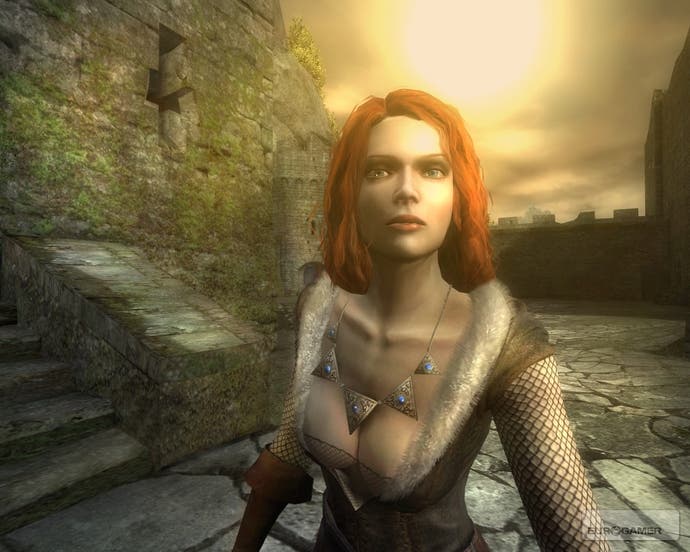
The combat tries to find the middle ground between the turn-based approach of, say, Knights of the Old Republic and the mouse-mashing of Diablo II. Clicking on an enemy initiates a swing of your sword, but as the attack comes to an end your cursor lights up. Click again at this point and you'll follow up with another attack move, and so on. Chain your attacks successfully and your opponent will struggle to respond. Get the timing wrong, and you'll break the combo and leave yourself open to reprisals. The right button is your magic attacks and, like weaponry, these can be honed and improved by spending the bronze, silver or gold "talents" you gain from victorious quests and skirmishes.
It's not a bad system but, while it does a decent job of simulating a sword fighting mindset using very simple means, it can also leave you unsure of what's happening or why. There's often a pause before Geralt begins his attacks, and it's just long enough for it to be easily mistaken for a parried assault. So you click again, and break the combo before it starts. All defensive moves are handled automatically as part of the successful mouse-click sequence, so when you do find yourself taking a pasting, it can feel frustratingly out of your control. This is especially true in the fist-fights that you can tackle as a way of raising extra cash, where suddenly you can block with the right button, but are left even less sure of how or when Geralt will respond to your commands.
The system can be tamed with practice, and it's certainly preferable to yet another "point at the monster and hammer the mouse" game, but it's not an entirely successful experiment and you may find yourself thinking it's a lot of arsing around for not much benefit.

